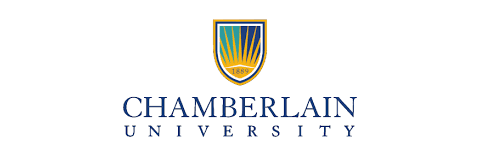DePaul University Online NP Programs
What to Expect from DePaul University Online NP Programs
Admission Requirements: Admission requirements vary depending on the program.
For the certificate programs, applicants must submit an application package consisting of an online application, official transcripts verifying completion of a master’s degree in nursing as well as transcripts from all colleges and universities attended, a personal statement that describes both the applicant’s reasoning for completing a post-master’s certificate at DePaul as well as short- and long-term professional goals within the student’s current area of practice, two letters of recommendation, a copy of their CV or resume, an application fee, proof of an unencumbered RN license in the state in which the student intends to complete the clinical practicum, and, if necessary, proof of English language proficiency.
For the doctor of nursing practice (DNP) program, applicants hold a bachelor of science in nursing (BSN) degree or master of science in nursing (MSN) degree from an ACEN-, CNEA-, or CCNE-accredited nursing program, provide proof of a current, unencumbered RN license in the state in which they will complete their clinical practicum, and have a minimum 3.0 GPA in the RN program. Two letters of recommendation, a personal statement, a current resume, and official transcripts from each college or university attended are also needed.
State Restrictions: Both the DNP and the certificate programs are not available to students in all fifty states. They are not open to students who plan to complete their clinical practicum requirement in any of these states: Arizona, California, Colorado, Louisiana, Minnesota, Nevada, New York, Tennessee, and Washington. Students planning to secure advanced practice licensure outside Illinois after graduation are strongly recommended to contact the licensing agency where they plan to practice to verify all requirements and restrictions that may apply to them before they begin additional nursing education.
DePaul University’s programs also accept international students. International applicants complete an online application, pay a non-refundable application fee, and submit adequate proof of English language proficiency. Also necessary to a complete application is the credential evaluation process. This process is required to confirm that students who completed training outside the United States have an education equivalent to that of domestic students and will thus possess the requisite training needed to practice responsibly upon completion of the certificate program. As this credential evaluation process can be complex, prospective international applicants are recommended to learn more about the process on the DePaul website and contact DePaul University with any additional questions.
Study Plan: DePaul University offers flexible online study options for both its post-master’s NP certificate programs and BSN-to-DNP programs, allowing students to balance personal and professional commitments. Applications are reviewed on a rolling basis, with start dates available in the fall (July), winter (November), spring (February), and summer (April) terms.
The AGNP certificate comprises 43 credits, while the FNP certificate requires 44 credits. Both certificate programs are offered entirely online, enabling students to complete coursework from any location without on-campus visits.
The BSN-to-DNP program includes a 40-credit doctoral core in addition to specialized track requirements. Students pursuing the AGNP track complete a 51-credit advanced practice core and eight credits in doctoral specialty coursework. In comparison, the FNP track requires a 52-credit advanced practice core and eight doctoral specialty credits. All DNP students must also complete a culminating DNP Project, which involves a needs assessment, development and implementation of a research initiative, program evaluation, and the production of a publishable-quality manuscript and formal presentation.
Certificate Core Curriculum: The AGNP and FNP certificate programs have nearly identical coursework requirements. Both programs require completion of a standard set of 38 credits of core coursework. These courses include pathophysiology for advanced practice; health assessment for advanced practice; pharmacology for advanced practice; primary care of the adult and older adult; clinical management of acute and chronic illnesses in primary care; and a series of practicums in population-based nursing practice.
- AGNP Certificate Courses: This 43-credit certificate requires completion of the aforementioned 38 credits of core coursework and a five-credit course in advanced gerontological nursing and pharmacotherapeutic implications.
- FNP Certificate Courses: This 44-credit certificate requires completion of the aforementioned 38 credits of core coursework and a six-credit course in women’s health, maternal child, and adolescents.
DNP Core Curriculum: As mentioned above, the BSN-to-DNP program includes a 40-credit doctoral core. Courses in the core curriculum include finance and costing in healthcare; culture, ethics, and policy analysis; healthcare economics; leadership and organizational behavior; informatics and technology applications; biostatistics & research methods for advanced practice; evidence-based practice research; and a DNP project practicum. In addition to this core curriculum, students must also complete the track requirements for their one designated concentration track.
- BSN-to-DNP AGNP Track Courses: The AGNP track requires students to complete 51 credits of advanced practice core courses and eight credits of coursework in a doctoral specialty. Courses include theoretical components of nursing; pathophysiology for advanced practice; health assessment for advanced practice; primary care of the adult and older adult; clinical management of acute and chronic illnesses in primary care; pharmacology for advanced practice; professional issues & research in population-based advanced practice nursing; population health quality and safety; advanced gerontological nursing & pharmacotherapeutic implications; and a series of practicums in population-based nursing practice.
- BSN-to-DNP FNP Track Courses: The FNP track requires students to complete 52 credits of advanced practice core courses and eight doctoral specialty credits. Courses include theoretical components of nursing; pathophysiology for advanced practice; health assessment for advanced practice; primary care of the adult and older adult; clinical management of acute and chronic illnesses in primary care; women’s health, maternal child, and adolescents; pharmacology for advanced practice; professional issues & research in population-based advanced practice nursing; population health quality and safety; and a series of practicums in population-based nursing practice.
Online Experience: DePaul University offers its nursing programs using an online delivery model. This model meets the flexibility that many working nurse professionals require to pursue additional education.
On-Site Requirements: Though DePaul University’s post-master’s certificate programs are offered online, students must still complete the series of population-based nursing practice clinicals in person. Likewise, students in the BSN-to-DNP tracks are required to fulfill in-person clinical practicums within their state of licensure to meet advanced practice competency requirements.
Paying for the DePaul University Online NP Programs
Online nursing program tuition numbers are listed in the tables below. They do not include additional costs such as textbooks or other course materials. Prospective students should contact the DePaul University admissions team for assistance with application and financial aid needs.
DePaul University’s graduate certificate programs are designated as Gainful Employment Programs by the U.S. Department of Education. This designation makes students of these programs eligible for federal student aid. In addition to aid that may be secured through the completion of the free application for federal student aid (FAFSA), students may also be eligible for various scholarships. Applicants are advised to explore the DePaul University Scholarship Connect webpage and contact the admissions office for more information.
DePaul University in Chicago, IL offers two post-master's NP certificate programs, geared toward MSN-prepared nurses who want the flexibility and expediency of adding an NP specialization online.
Adult-Gerontological NP Certificate (Primary Care)
BSN to DNP – Adult-Gerontological Nurse Practitioner
BSN to DNP – Family Nurse Practitioner
Family Nurse Practitioner Certificate
1110 W. Belden Avenue, Suite 403
Chicago, Illinois 60614
Program Essentials
Post-Master Certificate – Post-Graduate (Post-MSN) Nursing Certificate
AG-PCNP – Adult-Gerontology Primary Care Nurse Practitioner
Fall, Winter, Spring, Summer
Yes
0
43
500
CCNE Candidate (new program; all other DePaul nursing programs are CCNE-accredited)
Program Admissions
MSN – Master of Science in Nursing
No GRE Required
None specified
AZ, CA, LA, MN, NV, NY, TN, WA
Program Tuition
43
$836.00
$35,948.00
$836.00
$35,948.00
Program Essentials
DNP – Doctor of Nursing Practice
AG-PCNP – Adult-Gerontology Primary Care Nurse Practitioner
4 – Fall, Winter, Spring, Summer
Yes
0
99
600
CCNE – Commission on Collegiate Nursing Education
Program Admissions
BSN – Bachelor of Science in Nursing
No GRE Required
3.0 or higher
AZ, CA, CO, LA, MN, NV, NY, TN, WA
Program Tuition
99
$836.00
$82,764.00
$836.00
$82,764.00
Program Essentials
DNP – Doctor of Nursing Practice
FNP – Family Nurse Practitioner
4 – Fall, Winter, Spring, Summer
Yes
0
100
600
CCNE – Commission on Collegiate Nursing Education
Program Admissions
BSN – Bachelor of Science in Nursing
No GRE Required
3.0 or higher
AZ, CA, CO, LA, MN, NV, NY, TN, WA
Program Tuition
100
$836.00
$83,600.00
$836.00
$83,600.00
Program Essentials
Post-Master Certificate – Post-Graduate (Post-MSN) Nursing Certificate
FNP – Family Nurse Practitioner
Fall, Winter, Spring, Summer
Yes
0
44
500
CCNE Candidate (new program; all other DePaul nursing programs are CCNE-accredited)
Program Admissions
MSN – Master of Science in Nursing
No GRE Required
None specified
AZ, CA, LA, MN, NV, NY, TN, WA
Program Tuition
44
$836.00
$36,784.00
$836.00
$36,784.00
Tuition is calculated based on credits, at the published tuition rate. Rates may change, so please check here for the latest tuition information. For programs with variable tuition rates, we use the rates for part-time students. “Resident” and “non-resident” refer to the student’s school-recognized state residency status. Tuition number represents the cost of tuition for the entire program, not per semester or year. Estimated total tuition does not include additional fees.

Bernd Geels
WriterBernd Geels is a Berlin, Germany-based freelance writer and artist. He holds an undergraduate degree in atmospheric science and two graduate degrees. He completed his most recent graduate degree in international environmental studies at the Monterey Institute of International Studies in 2011. He is interested in healthcare, climate change, marine conservation, indigenous science, and refugee issues. You can reach him directly at [email protected].



